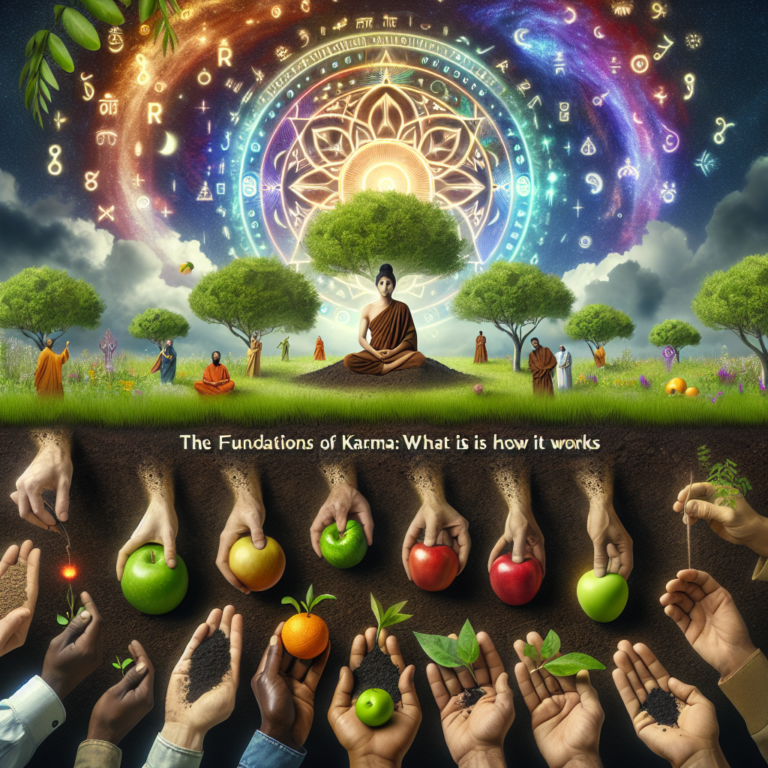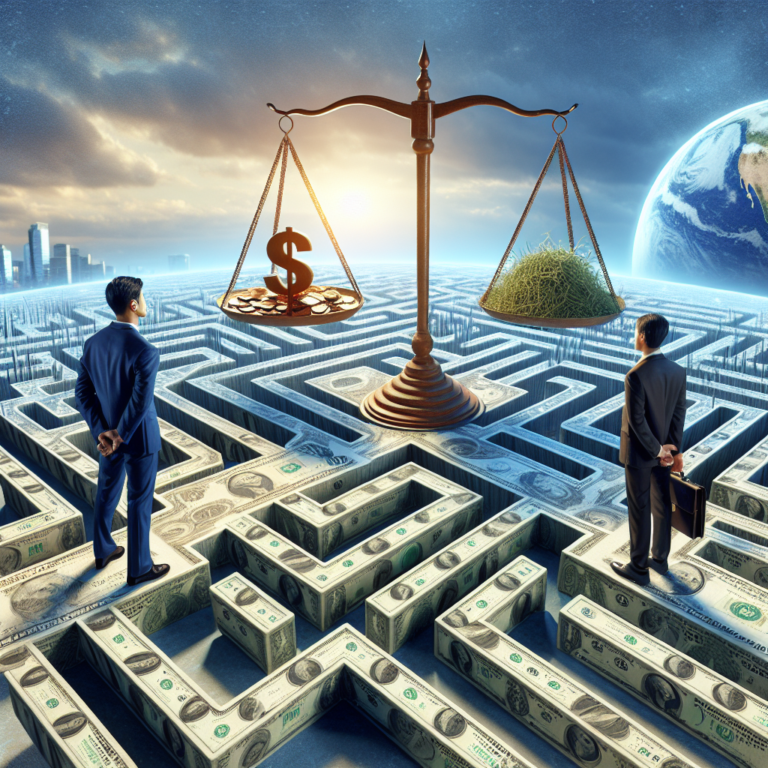Karma is a concept that has traveled across cultures and centuries, ingrained in the philosophies of Buddhism, Hinduism, and various spiritual teachings. Despite its varied interpretations, at the core, karma embodies the law of cause and effect, encapsulating how our actions—in intentions and behaviors—profoundly influence our lives and overall well-being. Understanding this relationship between karma and our personal experiences can be a transformative journey, allowing us to cultivate positive actions that lead not only to individual healing but also to a greater harmony within our communities and the world.
Understanding Karma
At its simplest, karma suggests that every action generates a force that creates a corresponding reaction. This principle can be encapsulated in the saying, “What goes around, comes around.” The significance of this understanding is immense, for it underlines the interconnectedness of our actions with our personal experiences. When we think about our actions, we must consider their intent and their potential impact, recognizing that even the smallest deed can set off a chain reaction that affects not only ourselves but others as well.
The Roots of Karma
In Eastern religions, karma originates from the ancient Indian philosophies where it is tied to the cycles of life, death, and rebirth (samsara). According to these teachings, the deeds of an individual not only affect their present life but also the nature of their future incarnations. Therefore, good actions may lead to favorable circumstances in future lives, while negative actions may lead to difficulties.
Western interpretations have also begun to embrace the principles of karma, albeit in a more metaphorical sense. Here, karma often signifies social justice or reaping rewards or consequences based on one’s character and actions in a more immediate context.
The Connection Between Karma and Well-Being
Our physical, emotional, and spiritual well-being is significantly influenced by our actions and choices. When we engage in positive actions, such as kindness, altruism, and compassion, we not only contribute to the happiness of others but also cultivate a sense of purpose and fulfillment within ourselves.
Positive Actions and Their Effects
Engaging in positive, karma-creating actions fosters an internal state of peace and happiness. Some examples include:
- Acts of Kindness: Simple gestures such as helping a neighbor or complimenting a stranger can create ripples of positivity, improving your mood and the environment around you.
- Volunteering: Donating your time to a cause can provide a sense of achievement and connection, enhancing your mental health and reducing feelings of isolation.
- Gratitude: Practicing gratitude shifts your focus from what is lacking to recognizing the abundance in your life, leading to greater contentment.
- Forgiveness: Letting go of grudges can foster emotional healing and reduce stress, ultimately benefiting your physical well-being.
These actions generate positive karma and contribute to a sense of well-being, which can manifest in various ways—improved mental health, physical health, and stronger social connections.
The Consequences of Negative Actions
Conversely, engaging in harmful actions, whether through negativity, deceit, or selfishness, brings about adverse outcomes that can harm both the individual and those around them. Consider the following:
- Negativity: Harboring negative thoughts and taking negative actions can lead to a cycle of resentment, unhappiness, and social isolation.
- Dishonesty: Lying or being deceitful can lead to a loss of trust, affecting relationships and self-image.
- Selfishness: Prioritizing personal gain over the well-being of others can create a sense of emptiness, resulting in loneliness and lack of fulfillment.
- Intolerance: Discrimination or intolerance towards others breeds division, resentment, and can create societal conflict.
These negative actions generate negative karma and can contribute to various forms of distress and discontent in our lives.
Karma, Health, and Healing
Research in psychology and holistic health has increasingly shown the links between our actions, emotions, and physical health. When we act from a place of compassion and kindness, we not only uplift those we help but also trigger positive changes within ourselves. Alternatively, negative feelings and actions can lead to stress, anxiety, and even chronic health conditions.
The Psychological Dimension of Karma
Psychologically, our thoughts (intent) and actions can significantly affect our mood and mindset. Engaging in positive actions can promote the release of ‘feel-good’ hormones like oxytocin and endorphins, thereby strengthening the mind-body connection and facilitating emotional healing. For instance:
- Euphoric Response: Acts of kindness can induce moments of euphoria or heightened joy, reinforcing our sense of connection to others.
- Reduction in Anxiety: Engaging in community or altruistic activities can reduce feelings of anxiety, promoting a greater sense of belonging.
The Physical Dimension of Karma
There is also a physical aspect to the interplay of karma and health. When we engage in actions that promote our well-being—like regular exercise, healthy eating, or acts of kindness—we’re fostering a healthier body. Moreover, when we harbor negative emotions or engage in destructive behaviors, we risk physical ailments, stress, and a compromised immune system.
The Ripple Effect of Our Actions
The healing power of karma extends beyond the individual. When we act positively, we create a ripple effect that can touch our communities and influence larger societal shifts. Collective positive actions can lead to significant social change—eradicating injustice, promoting tolerance, or enhancing community cohesion.
Building Community Through Positive Karma
Communities thrive when individuals engage in actions that uplift one another. Initiatives such as community service, group activities, or neighborhood cleanup projects are prime examples of how positive karma builds a sense of belonging and strengthens interpersonal relationships. Such efforts also foster environments where people are encouraged to manifest kindness and lead enriched lives, directly impacting their overall well-being.
Connecting on a Global Level
The principles of karma resonate in global movements aimed at creating a more compassionate world. Campaigns promoting sustainability, equality, and communal support create networked impacts across different cultures and societies. Positive actions help foster a shared sense of responsibility, signaling that every individual has a role in shaping the future.
Transforming Negative Karma
Understanding karmic repercussions allows individuals the opportunity to transform negative actions into positive ones. It’s essential to acknowledge past wrongs and take steps towards corrective behaviors. To transform negative karma, one can:
- Reflect: Understand the impact of past actions on yourself and others.
- Apologize: Making amends can heal wounds and restore relationships.
- Engage in Positive Actions: Counteracting negative actions with good deeds fosters a healing environment.
- Meditate: Mindfulness practices can help you reconnect with your intent and promote inner peace.
Conclusion
The healing power of karma teaches us about the fundamental interconnectedness between our actions and our well-being. Whether one interprets karma through a spiritual or practical lens, the essence remains the same: our actions manifest consequences that impact our lives and the lives of those around us. By promoting positive actions, we not only foster a sense of peace and happiness within ourselves but also contribute to the healing of our communities and the larger world. Embracing this understanding empowers individuals to transform their lives through their choices, anchoring themselves in compassion, altruism, and healing.
FAQs
What is karma?
Karma is a spiritual principle that states that every action has consequences. It is often associated with the idea of cause and effect, where positive actions lead to positive outcomes, and negative actions lead to negative outcomes.
How can karma affect my well-being?
Karma can affect your well-being by influencing your mental and physical health. Engaging in positive actions contributes to a sense of fulfillment and happiness, while negative actions can lead to stress, anxiety, and health issues.
Can negative karma be changed?
Yes, negative karma can be transformed by acknowledging past actions, making amends, and engaging in positive deeds to create a more positive impact moving forward.
Is karma only related to spiritual beliefs?
While karma has roots in spiritual beliefs, its principles can also be applied to everyday life and psychology, resonating with concepts like personal responsibility and social justice.
How does community involvement relate to karma?
Community involvement is a powerful way to create positive karma. By engaging in acts that support others and strengthen community ties, individuals contribute to a healthier, interconnected environment that can enhance well-being for everyone.
It looks like you have a prompt in mind! Please share more details or specify what you would like assistance with, and I’ll be happy to help!, #Healing #Power #Karma #Actions #Affect #WellBeing, #Healing #Power #Karma #Actions #Affect #WellBeing, 1736199726, the-healing-power-of-karma-how-our-actions-affect-our-well-being





